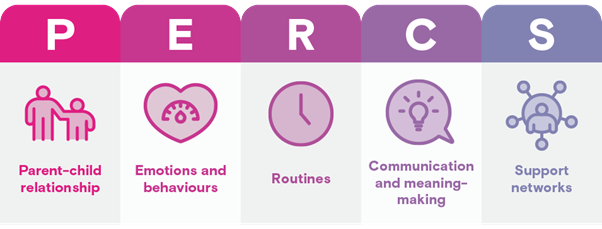
One of the benefits of working with young people is that we are aware of and able to involve ourselves in supporting them in the areas they most need support. We know anecdotally that our young people are suffering from poor mental health now more than ever. Fortunately for us, we have research and sound resources that can both inform and address these issues.
I want to share a few statistics with you:
- Of those aged 16 to 24, 38.8% had experienced a mental disorder within the last 12 months, including almost half of females (45.5%) compared with a third of males (32.4%), with anxiety disorders the most common at 31.8%.
- Mental health problems among young people have increased by 50% in the last 15 years.
- 13 – 18-year-olds displayed the highest increases across the most symptoms and illnesses, with Depression (65%), Social Anxiety Disorder (60%), General Anxiety Disorder (60%), suicidality or self-harm (50%) and peer relationship difficulties (48%) reported most by psychologists.
For us as a community, these are quite sobering statistics and demand a response, not only from the College but from our families and our broader community. At Thomas Carr College we engage a range of strategies to assist our young people with their mental health. Our approach is preventative, proactive, responsive, and empathic.
Our Counselling Team is one such strategy. We have four amazing counsellors and psychologists who consistently engage in best practice and apply this in their therapeutic and supportive work. Our Counselling Team meets with our students one to one, and offers them therapy and support on an individual basis. The Counselling Team also create and deliver targeted programs, such as Self-Regulation and Anger Management, in small group settings to support the growth and wellbeing of our students. Our Wellbeing Team is able to consult with them to inform our programs and approaches, such as the Time To Shine program, so that we are able to address the growing need in the mental health space.
One of the direct actions we take as a College is the Pulse Program. Every Tuesday morning every student in the College checks in with Pulse. Pulse assesses the wellbeing of individual students so that the school can respond to those who express a need for help from supporting staff. Pulse will collect anonymized data on the emotional, physical, and social drivers of wellbeing so that we can respond and make changes to our programs based on student’s voices. What we have found is that our students’ general mental health and wellbeing has improved because of the many strategies we employ. From our Counselling Team, Time to Shine Program, our Wellbeing processes and strategies, our Welcome Circles, our Consistent Predictable Routines, our Youth Liaison Officer, our College Nurse, our Family Partnerships Officer, our relationships with our students, and programs like Pulse to our communication with you, our families, we know we have a positive impact on each student’s good mental health.
As the families of our students, we know that when your child suffers from poor mental health it can be difficult to know what to do. We know that when we work together, families, mental health services, and schools, then the outcomes for our young people improve exponentially. Services such as ReachOut Australia offers excellent online resources that are easy to access and understand. Also, Emerging Minds can offer 5 key things parents can do to support their children’s mental health. I encourage all families to take the time to engage with these resources as sources for prevention and response. And I encourage all our young people to reach out to the people who care most about them, their families, their teachers, and their friends.
Good mental health is possible for us all. If we talk about it, learn about it, and support each other, then we, as a community, can experience deeper satisfaction with life and can flourish and shine.

Ivanka Spiteri
Deputy Principal – Student Engagement and Wellbeing


